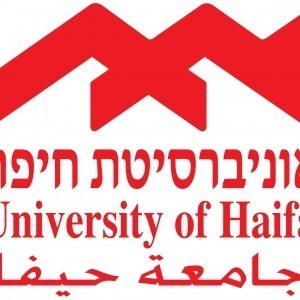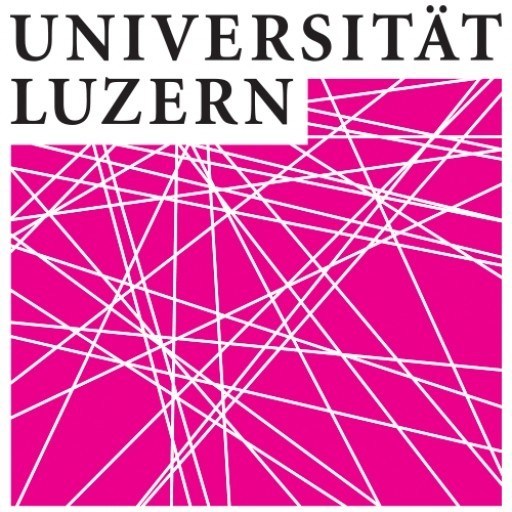Jewish Studies at Rutgers University-Camden offers a comprehensive interdisciplinary curriculum designed to deepen students' understanding of Jewish history, culture, religion, language, and society. This program aims to explore the diverse experiences of Jewish communities from ancient times to the modern era, fostering critical thinking and cultural awareness. Students engaging in this program will have the opportunity to examine Jewish texts, traditions, and practices through multiple perspectives, integrating history, literature, religious studies, and social sciences. The curriculum includes courses on Jewish history, philosophy, Hebrew language, Jewish literature, and contemporary issues facing Jewish communities globally. Through a combination of lectures, seminars, and research projects, students will develop analytical skills and a nuanced appreciation for the complexities of Jewish identity and culture. The program also emphasizes the significance of Jewish contributions to broader historical and cultural developments, highlighting themes such as diaspora, migration, and intercultural exchange. In addition, students may have opportunities for experiential learning through internships, study abroad programs, and engagement with local Jewish organizations. With a dedicated faculty specializing in Jewish studies, students are encouraged to pursue independent research and participate in academic conferences. Graduates of the Jewish Studies program are well-prepared for careers in education, community leadership, academia, public policy, and related fields. They will also be equipped for advanced study in graduate or professional schools, with a solid foundation in Jewish history, theology, and culture. Rutgers-Camden's Jewish Studies program promotes an inclusive environment dedicated to fostering dialogue, understanding, and respectful exploration of Jewish heritage and contemporary issues.
The Jewish Studies program at Rutgers University-Camden offers students a comprehensive exploration of the history, culture, religion, and contributions of Jewish communities worldwide. This interdisciplinary program is designed to provide a deep understanding of Jewish life from ancient times to the present day, integrating perspectives from history, literature, religion, sociology, and political science. Students will engage with a wide range of topics, including Jewish religious texts, historical developments, cultural practices, and contemporary issues faced by Jewish populations. The curriculum emphasizes critical thinking and analytical skills, encouraging students to examine complex social and historical contexts and to engage in meaningful discussions about identity, tradition, and modernity. The program also aims to foster an appreciation of the diversity within Jewish communities and their influence on broader society. Through lectures, seminars, research projects, and potential internships, students will develop a nuanced understanding of Jewish civilization and its global significance. Career opportunities for graduates include roles in education, community service, cultural organizations, research, and international relations. The program values experiential learning and offers access to various resources, including archives, cultural events, and partnerships with local Jewish organizations. With a dedicated faculty of scholars specializing in Jewish history, religion, and culture, students will receive personalized guidance and mentorship. Graduates of the Jewish Studies program will be well-equipped to pursue advanced degrees or enter careers that require cultural literacy and a comprehensive understanding of Jewish history and culture. As part of Rutgers University-Camden’s commitment to diversity and inclusion, the program promotes an environment of open dialogue, critical inquiry, and appreciation for cultural pluralism. Whether students are interested in religious studies, history, or social sciences, the Jewish Studies program provides a robust foundation for academic and professional growth in a dynamic and increasingly interconnected world.
The Jewish Studies program at Rutgers University-Camden offers a comprehensive curriculum designed to provide students with an in-depth understanding of Jewish history, culture, religion, literature, and contemporary issues. The program typically requires completion of foundational courses in Jewish history, tradition, and culture, along with advanced seminars that explore specific topics such as antisemitism, Zionism, Jewish philosophy, and modern Jewish movements. Students are encouraged to engage with primary sources and participate in research projects to deepen their analytical skills. The curriculum often includes language acquisition components, such as Hebrew or Yiddish language courses, to facilitate access to original texts. Additionally, the program promotes experiential learning through internships, study abroad opportunities, and interaction with community organizations specializing in Jewish heritage and cultural preservation. Core courses may cover historical periods from ancient times to the present, examining the Jewish diaspora, religious practices, and societal contributions. Electives offer specialized topics like Jewish art, literature, and politics. To complete the degree, students must fulfill a certain number of credits in core and elective courses, participate in capstone projects, and demonstrate proficiency in relevant languages where applicable. The program aims to prepare students for careers in education, community service, cultural organizations, or further academic study. Overall, the Jewish Studies program combines interdisciplinary approaches with experiential learning components to offer a well-rounded education in Jewish history and culture.
The Jewish Studies program at Rutgers University-Camden offers a variety of financial aid options to support enrolled students. Prospective and current students can apply for federal and state financial aid programs, including Pell Grants, Federal Supplemental Educational Opportunity Grants (FSEOG), and state-specific scholarships for which Jewish Studies students may be eligible. Additionally, the university provides institutional scholarships based on academic merit, financial need, and specific criteria related to Jewish Studies or related fields. Students are encouraged to complete the Free Application for Federal Student Aid (FAFSA) each year to determine their eligibility for federal aid programs.
Rutgers University-Camden also offers numerous scholarships dedicated to students pursuing Jewish Studies, funded through university endowments and donations. These scholarships may have specific eligibility requirements, such as demonstrated interest or involvement in Jewish communities, academic achievement, or affinity with Jewish culture and history. Furthermore, students can explore internship and assistantship opportunities within the department or related campus centers that provide stipends or hourly wages, helping to offset educational costs.
Many students finance their education through a combination of these aid options, along with personal savings, family assistance, or private loans. The university’s Financial Aid Office provides counseling and resources to guide students through the application process, ensuring they access all available funding opportunities. Rutgers-Camden also participates in external scholarship programs offered by various Jewish organizations, foundations, and community groups, which students can apply for separately.
To support diverse student financial needs, the university advocates for transparent communication and personalized assistance, aiming to make Jewish Studies education accessible regardless of economic background. Students are advised to regularly check the university website and contact the financial aid office for up-to-date information regarding application deadlines and scholarship opportunities. Overall, Rutgers University-Camden is committed to providing comprehensive financial support options that enable students to pursue their academic interests in Jewish Studies without undue financial burden.
The Jewish Studies program at Rutgers University-Camden offers students an in-depth exploration of Jewish history, culture, religion, and society. This interdisciplinary program is designed to provide a comprehensive understanding of Jewish life from ancient times to the present day, integrating perspectives from history, religious studies, anthropology, literature, and politics. Students have the opportunity to engage with a wide array of courses that cover topics such as Jewish thought, traditions, language, and contemporary issues facing Jewish communities worldwide. The program emphasizes critical thinking and encourages students to examine Jewish identity and cultural practices within broader social and historical contexts. Rutgers-Camden's Jewish Studies program aims to prepare students for careers in academia, education, community service, public policy, and related fields. It also fosters a greater appreciation of religious and cultural diversity, promoting cross-cultural understanding and dialogue. The curriculum often includes courses taught by faculty with expertise in Jewish history, religious studies, Holocaust studies, and Jewish cultural studies. Students may also have access to lectures, conferences, and events that deepen their understanding of Jewish issues. The program collaborates with local Jewish organizations and cultural institutions, providing students with opportunities for internships, service learning, and community engagement. Graduates of the program are well-equipped to pursue advanced degrees or enter professions that benefit from a nuanced understanding of Jewish history and culture. Overall, Rutgers-Camden's Jewish Studies program offers a rich academic environment dedicated to exploring the diverse and dynamic aspects of Jewish life across different periods and regions.





